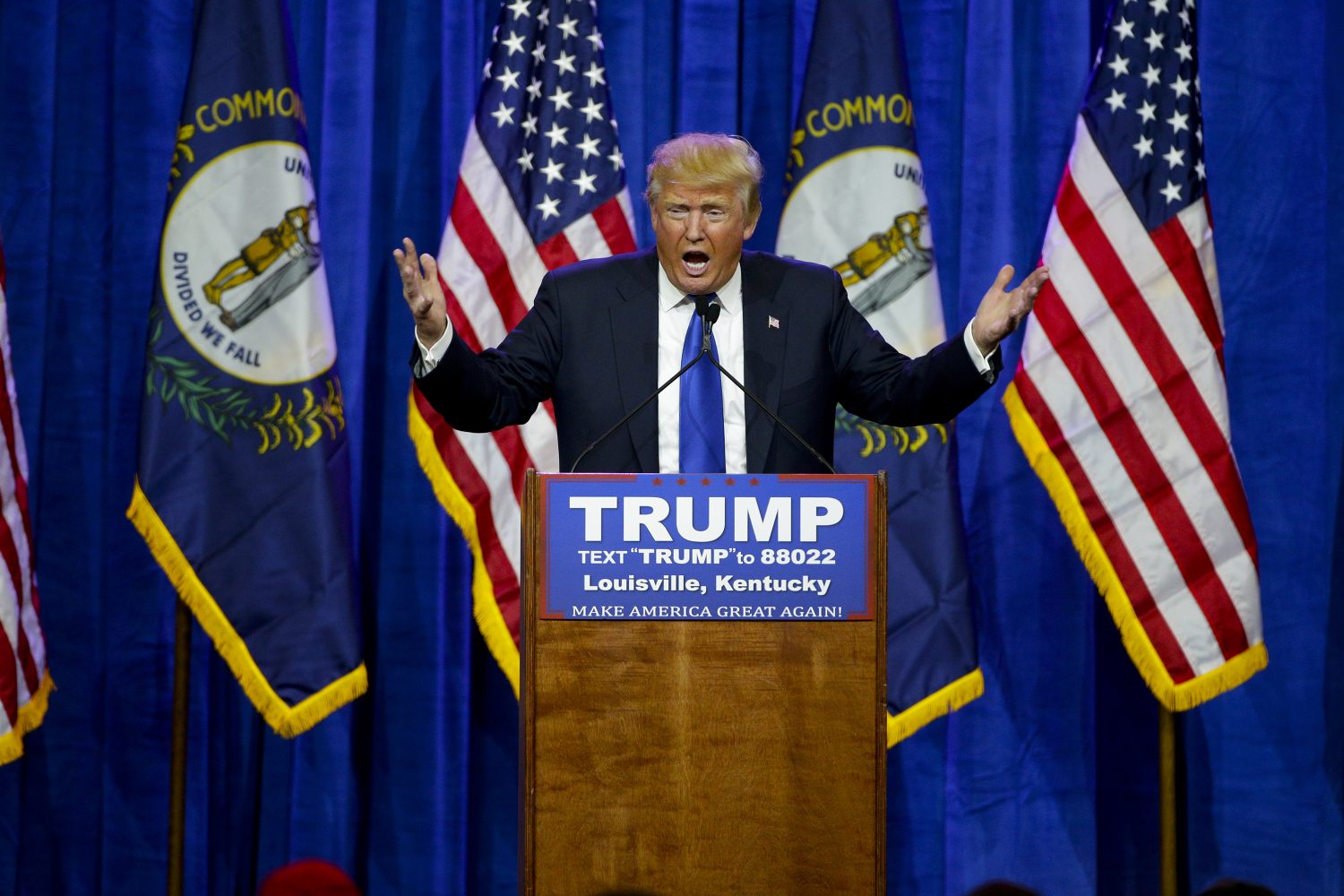Donald Trump and Hillary Clinton confirmed their positions as front-runners for their party’s nomination with sweeping victories on Super Tuesday, March 1.
Super Tuesday is the day when 13 states (Alabama, Alaska, Arkansas, Colorado, Georgia, Massachusetts, Minnesota, Oklahoma, Tennessee, Texas, Vermont, Virginia, and Wyoming) and one territory (American Samoa), hold their primary elections. It is occasionally called the SEC Primary, a reference to the Southeastern Athletic Conference, due to the many southern states that take part in the voting on Super Tuesday (Alabama, Arkansas, Tennessee, Texas, and Georgia).
661 Republican delegates are awarded on Super Tuesday, a few hundred less than the 865 Democratic delegates. Since Super Tuesday is before March 15, no state has a “winner-take-all” policy, and each state will end up splitting its delegates in some way.
Trump was the clear choice for Republicans, winning seven states (Alabama, Arkansas, Georgia, Massachusetts, Tennessee, Vermont, and Virginia) and a total of 285 delegates. These delegates are now bound to Trump; they are required to support him at the Republican National Convention.
Coming in over a hundred delegates behind Trump was Ted Cruz, winning 3 states for a total of 161 delegates. The Texas senator managed to win Alaska, Oklahoma, and his home state.
In third place was Marco Rubio; he only manage to pull off a win in one state, Minnesota, for a measly 87 delegates. Despite this, Senator Rubio insists he is not pulling out of the race.
Speaking at a rally in Florida, Rubio spoke out against Trump, who has amped up his criticisms of the Florida Senator, referring to him as “little Marco” repeatedly over the last few weeks.
“Just five days ago we began to unmask the true nature of the front runner so far in this race,” Rubio announced, according to NBC. “Five days ago, we began to explain to the American people that Donald Trump is a con artist … And two weeks from tonight right here in Florida we are going to send a message loud and clear.”
Despite his brave talk, early polls actually show Rubio trailing Trump by nearly 20 points in his home state.
Other than the Big Three, Ohio Governor John Kasich and retired neurosurgeon Ben Carson are clinging on to their presidential aspirations. Neither candidate successfully won an entire state, with Kasich and Carson winning 25 and 8 delegates, respectively. Kasich has said he will suspend his candidacy if he fails to win the Ohio primary, to be held on March 15.
Democrats have a slightly different system for Super Tuesday; they have both pledged delegate and superdelegates available. Pledged delegates are based on each state’s primary results, while superdelegates can support any candidate they choose.
Hillary Clinton swept up Democratic delegates, winning 544 compared to Senator Bernie Sanders’s 349. Clinton won seven states, claiming victory in Alabama, Arkansas, Georgia, Massachusetts, Tennessee, Texas, and Virginia, while Sanders managed to claim Colorado, Minnesota, Oklahoma, and his home state of Vermont.
In her victory speech in Miami, Florida, Clinton attempted to distance herself from Trump’s frequently mean, offensive rhetoric.
“It might be unusual for a presidential candidate to say this,” she said, according to NBC News, “but I believe that what America needs today is more love and kindness.”
Democrats next turn to Kansas, Louisiana, and Nebraska on March 5, with Republicans holding primaries in those states and Maine on the same day.
Photo Credits via MCT Campus: Presidential candidate Donald Trump speaks to a couple thousand supporters in Louisville, Ky., on Tuesday March 1, 2016. (Mark Cornelison/Lexington Herald-Leader/TNS)


